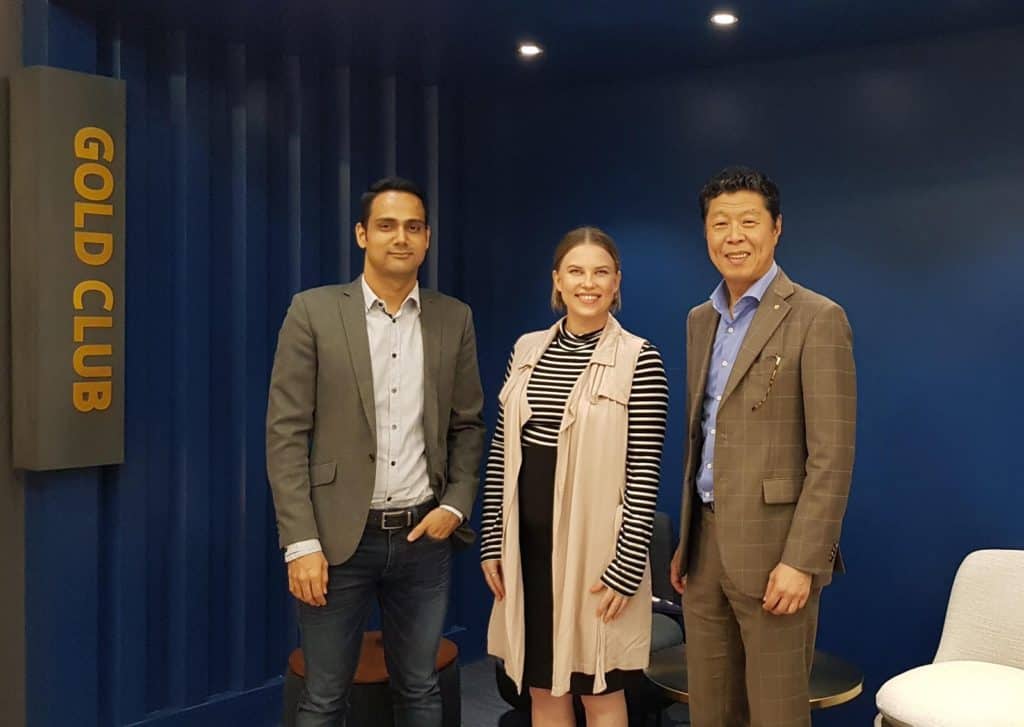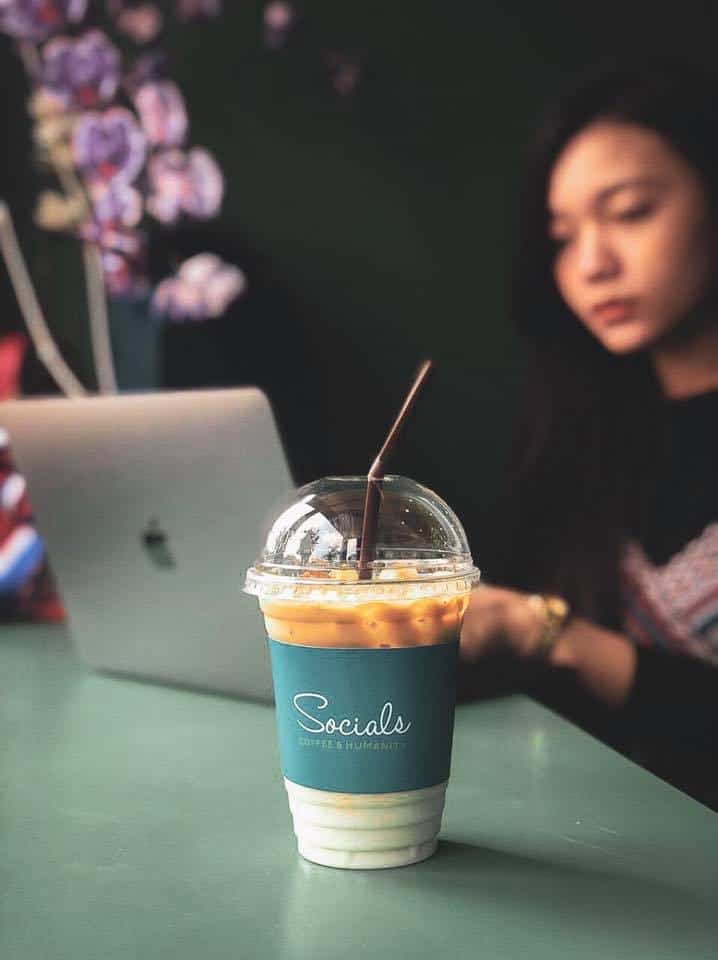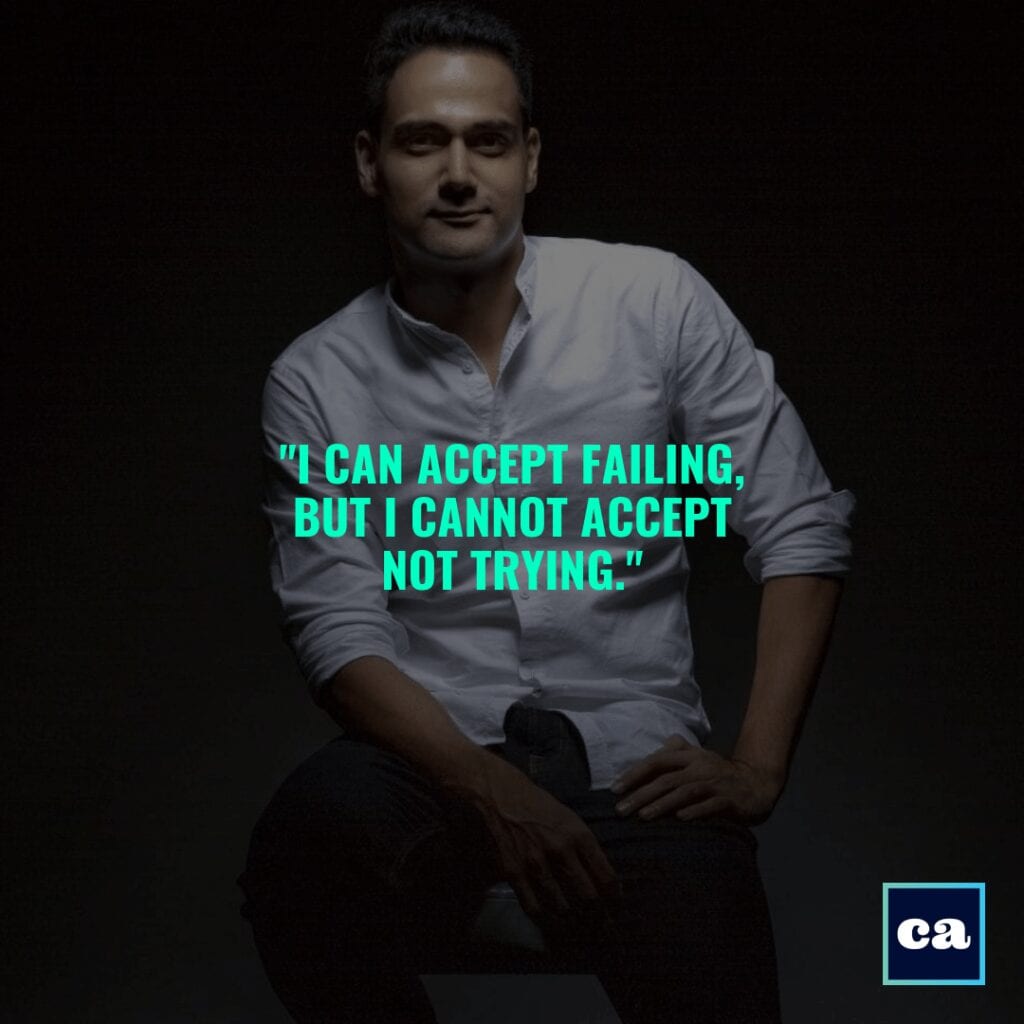Socials – Coffee & Humanity. Straight from their name, the combo of lattes and life, what’s not to love?
Socials is a social enterprise set up with the aim of generating employment opportunities for the deaf community in Cambodia.
The Socials team is on a mission to change the perceptions and unintentional biases of businesses towards hiring people who are deaf and they want to set an example and inspire other businesses to hire deaf staff.
Started by Mr. Swapnil Deshmukh within the last year, Socials has taken off – leading the way for empowering people with disabilities. I especially like the Socials model as it involved a corporate collaboration and partnership with PPCBank, one of Cambodia’s leading commercial banks.
Personally, I feel like the private sector needs to be doing more to enable grassroots social enterprises and startups to get where they need to be, and to provide resources that may otherwise be challenging to grasp. The partnership with PPCBank and Socials demonstrates how businesses across sectors can work together for the greater good.
I was fortunate enough to sit down recently with with Swapnil and Mr Andrew Shin, PPCBank President, to discuss the story of Socials as well as their corporate relationship which helped launch Socials off the ground.

Swapnil got the idea of Socials during a trip to Vietnam in 2018. After strolling around Hoi An, Swapnil and his family walked into a café which was was full of people, yet very quiet. Being the chatty person he is, Swapnil tried to strike up a conversation with the barista but was politely told to keep quiet. After sitting down, he realized it was a silent café, completely operated by deaf staff. There was no wifi, no music and they even encouraged guests also to keep quiet or speak softly.
Listen to Causeartist podcasts.
The coffee there was fantastic and it made Swapnil realize that you don’t need to be able to hear or speak to make a good cup of coffee. It made him wonder why there aren’t more coffee shops hiring deaf staff and saw an opportunity to start something similar in Cambodia.
After his trip, Swampnil came back to Phnom Penh, resigned from his corporate finance role to start his own cafe to empower deaf people.
Love.
Globally, there is a lack of awareness and unintentional bias in training and hiring people who have a disability, including being deaf. In some countries, like Cambodia, there is also additional social stigma and reduced opportunities for people living with disabilities from a young age – for example being excluded from school. Swapnil has recognized a gap in the market, where people who have high capacity and a drive to work and succeed are excluded because of their disability.
With this, Socials – Coffee and Humanity was born, and they are showing how social enterprises can produce great products (the brownies and egg coffee are the recommendations!) and support people living with disabilities at the same time.
In terms of what helped launch Socials, it was their partnership with PPCBank. Mr Andrew Shin allowed Socials to use a small space at their branch to set up the first Socials shop. Mr Shin saw it as an opportunity to improve the PPCBank customers’ experience as well as to contribute to the deaf people of Cambodia, and hence, the flagship branch was opened.
PPCBank has set a target for investment in community projects, which is set at 10% of their budget, a significant amount for a bank who’s paid-up capital is US$ 80 Million.
When reflecting on the impact Socials was having in Cambodia, we discussed how small businesses can really affect a nation’s growth. “Cambodia can only grow if small businesses grow”, Mr Shin said.
Although there is often critique of the genuinity of the private sectors corporate social responsibility programs, this is an example of how to do it right. When two parties care equally about giving back and are able to work in unison to achieve goals that benefit some of society’s most vulnerable people, through meaningful employment and skill development, the positive outcomes dwarf the critiques.

So speaking of results, let’s look at what Socials has achieved in its first eight months of operation:
- They have 8 staff across two branches, with a third branch opening soon due to their success.
- Sales have been growing on a monthly basis.
- The number of staff employed will also increase as they open more shops with time. With more than 51,000 people living with deafness in Cambodia, there is a large community with limited work opportunities that now have greater access to thrive.
When I asked Swapnil what he is most happy about, he replied, “There are plenty of little moments every day at the cafe that make me happy, but I am most happy to see that my staff are empowered, independent and have a promising future ahead of them – and that I could play a small role in their journey.”
Staff are given an opportunity to learn new skills and grow their talents. Swapnil encourages staff to set high goals for themselves and is supportive of their independence. “If they want to go and start their own business, I am happy to support them and am proud that they have the skills and training to be successful on their own”, he said.

Of course, although this is a fantastic start up that empowers men and women living with disabilities, I still had to ask about their use of single use plastic take away cups. Swapnil and Mr Shin both acknowledged their recognition of plastic wastage and they are working on ways to reduce it. For example, they are using straws that decompose in 70-90 days, after trialling bamboo and metal straws.
Unfortunately customers don’t like metal straws as they get too cold and they don’t have positive perceptions of bamboo straws – so Socials has had to come up with the next best option. They are also working on a discount for customers that bring in reusable cups as well. This is an interesting lesson on the reality of plastic replacements for different consumer markets. And, again, the team is doing what they can to reduce and reuse, which is key in combating plastic waste.
Looking forward, Swapnil does not aspire for Socials to be the number one coffee provider in Cambodia. Instead, he measures success through the number of people who are deaf that have access to employment and an increase in the number of businesses that hire more inclusively. “Everyone should be doing it”, Swapnil reiterated.
For me, Socials is a fantastic example of empowerment, recognizing opportunity, creating change and positive partnerships. Giving people, who are otherwise excluded from opportunity, the right training and skills, they can blossom. Partnering with the right private business can lead to the successful launch of your enterprise. Then, where people are empowered, communities and nations can grow and improve together.
Are you thinking of starting your own social enterprise? Here is some advice from Swapnil:
“I knew my intentions were right and there was an opportunity to make a difference in serving humanity. I told myself – I can accept failing, but I cannot accept not trying. So my advice to anyone who is still reading this article is to go ahead and chase your dreams, don’t be afraid of failing. If you have to fail – fail fast, learn from the experience and come out stronger and better in your next attempt.”








